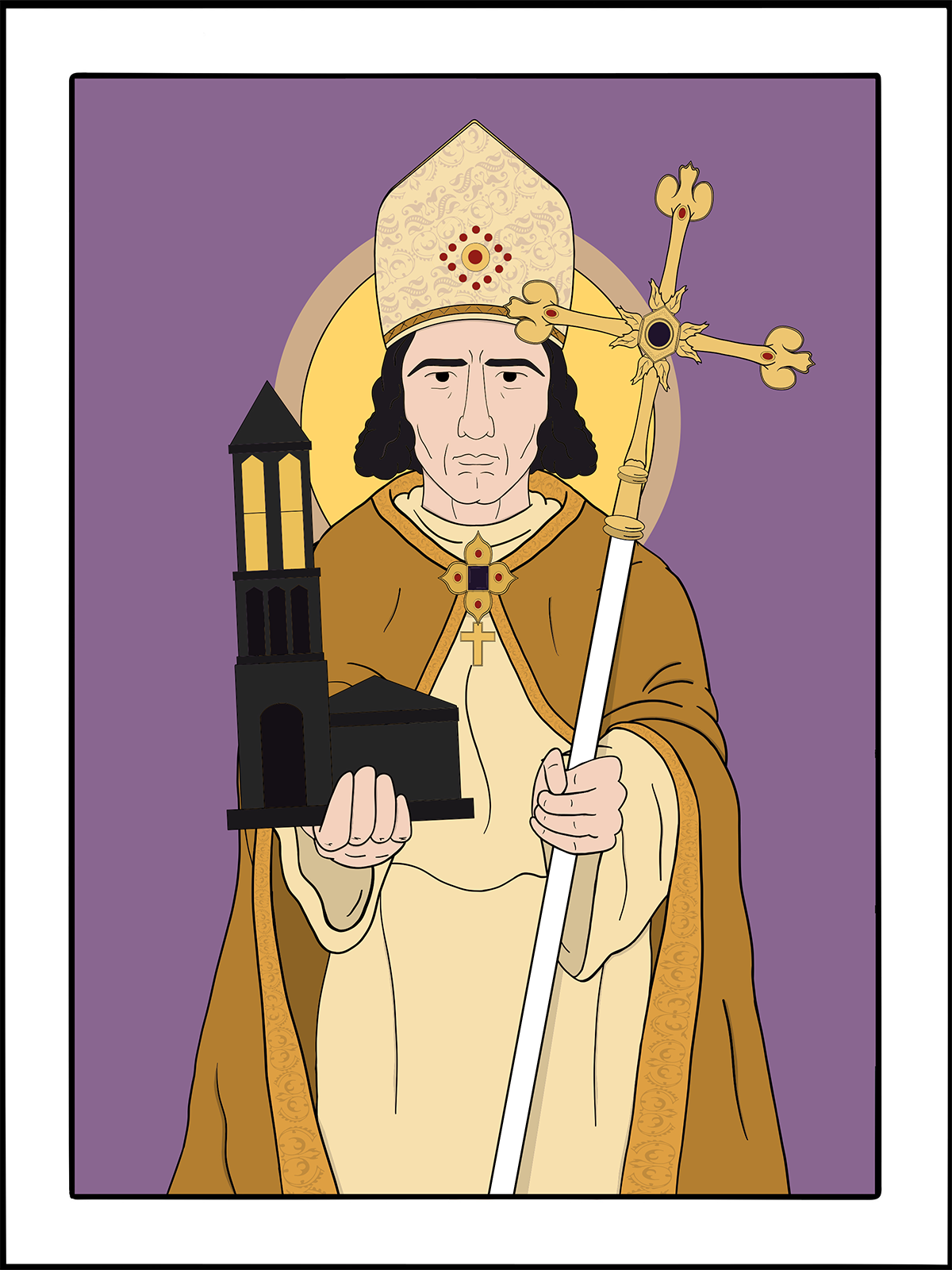
November 7
Willibrord
Bishop and Missionary, 739
art by Rev. Kirsten Kohr of Geneva, OhioPour out your Holy Spirit, O God, upon your church in every land, that like your servant Boniface we might proclaim the Gospel to all nations, that your kingdom might be enlarged and that your holy Name might be glorified in all the world; through Jesus Christ our Lord, who lives and reigns with you and the same Spirit, one God, for ever and ever. Amen.
We know about Willibrord’s life and missionary labors through a notice in Bede’s Ecclesiastical History and a biography by his younger kinsman, Alcuin. He was born in Northumbria around 658, and, from the age of seven, was brought up and educated at Bishop Wilfrid’s monastery in Ripon. For twelve years, from 678 to 690, he studied in Ireland, where he acquired his thirst for missionary work.
In 690, with twelve companions, he set out for Frisia, a pagan area that was increasingly coming under the domination of the Christian Franks. There, Bishop Wilfrid and a few other Englishmen had made short missionary visits, but with little success. With the aid of the Frankish rulers, Willibrord established his base at Utrecht, and in 695 Pope Sergius ordained him as a bishop and gave him the name of Clement.
In 698, he founded the monastery of Echternach, near Trier. His work was frequently disturbed by the conflict of the pagan Frisians with the Franks, and for a time he left the area to work among the Danes. For three years, from 719 to 722, he was assisted by Boniface, who at a later time came back to Frisia to strengthen the mission. In a very real sense, Willibrord prepared the way for Boniface’s more successful achievements by his relations with the Frankish rulers and the papacy, who thus became joint sponsors of missionary work. He died at Echternach, November 7, 739.
Excerpted directly from “Lesser Feasts and Fasts 2022,” p. 496-497.

